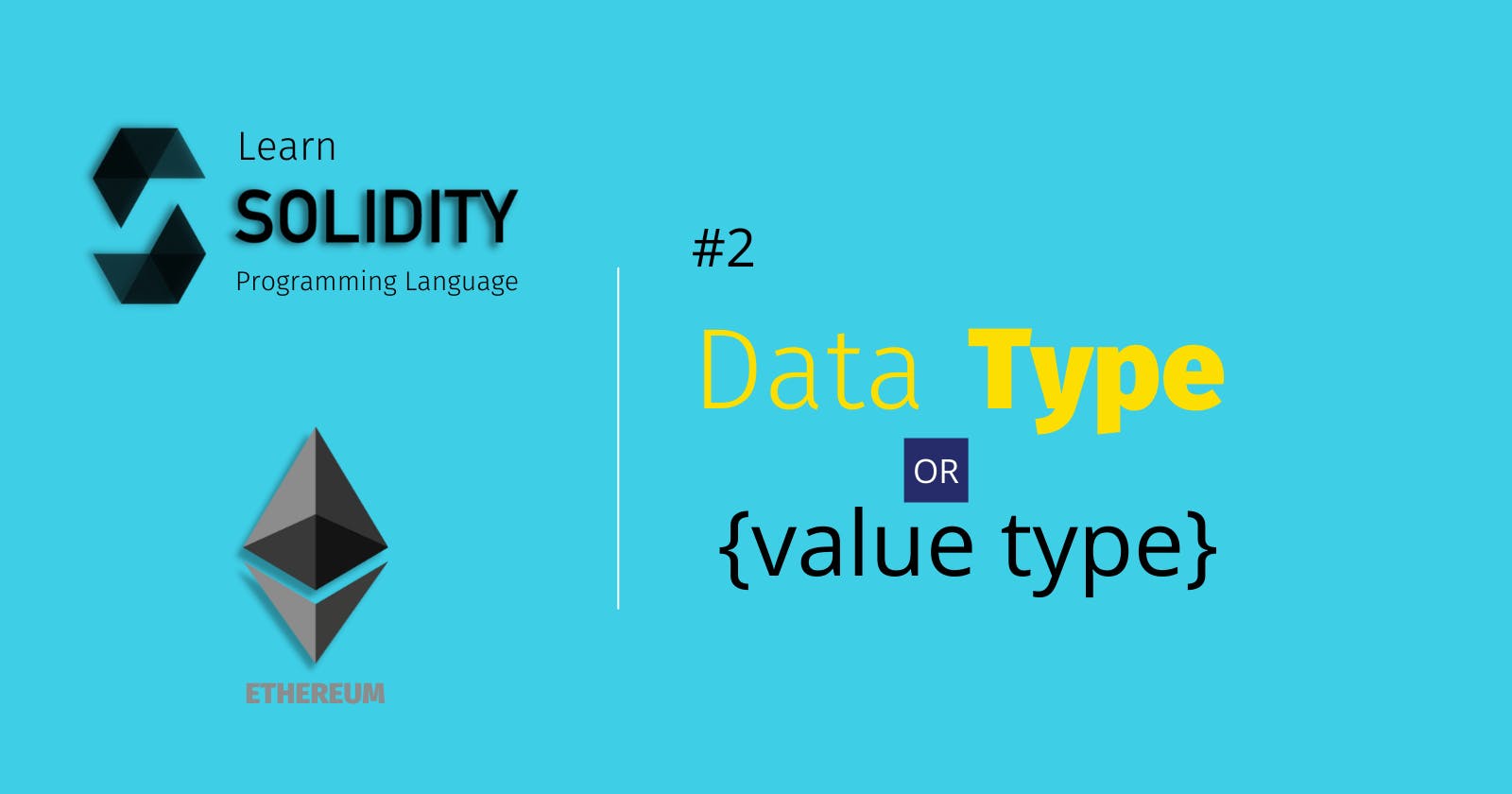I am available @ GitHub | Twitter
Data Types in Solidity
Solidity is statically typed language, which means data type of any/all variables has to be define during the declaration time itself. If not defined, the compiler throws an error. Based on the data type defined, the compiler reserves a memory for that variable. Data type in popularly called as value type in solidity. Every state variable or local variable in solidity have to declared with a specific data types.
Data type in solidity is broadly categorized in two types, based on how they are accessed
- Value Type
call by value - Reference type
call by reference
Value Type - call by value
In this category, data types are passes by value, which means, whenever an instance of the variable is called/initialized the data value gets copied to that instance.
Boolean (bool) - contains two types of value
- true
- false
Note - All letters are in small case. true is not same as True
Integers (int/uint)
There are two categories of integers supported in solidity.
Signed Integers : Both +ve & -ve values including 0
- int8 : value range ( -128 to 127)
- int16 : value range (-32768 to 32767)
- int32 : value range (-2147483648 to 2147483647)
- ....... > & so on with multiple of 8 and last one is
- int256 (or
int): value range (-2147483648 to 2147483647)
Unsigned Integers : Only +ve values starting with 0
- uint8 : value range (0 to 255)
- uint16 : value range (0 to 65535)
- uint32 : value range (0 to 4294967295)
- ...... > and so on, with multiple of 8 and the last value is
- uint256 (or
uint) : value range (0 to 4294967295)
String
- Use to store textual information such as name, place, data etc..
- String is similar to bytes but are used for for arbitrary-length string
(UTF-8)data - Declared using single quote
' 'or double quotes" "
Note : string does not allow length or index access
Address (a 20 byte value) - for Ethereum
There are two types of address type in solidity address and address payable
address : size - 20 byte
- Ether cannot be sent to this address
- Associated members:
balance,code,codehash,call,delegatecall,staticcall
address payable : size - 20 byte
- Ether can be sent on this address
- Associated members:
transferandsend
Note - Conversion from address payable to address is implicit BUT from address to address payable has to be explicit using payable(<address>)
Byte array (static)
- Fixed Size byte arrays
bytes1: holds one byte onlybytes2: holds two bytes onlybytes3: holds three bytes onlybytes4: holds four bytes only- ..... and so on till
bytes32: holds thirty-two bytes only (this is maximum size of fixed type byte array)
Associated member: length - returns the length of byte array
Note: Bytes are used for arbitrary-length raw byte data
Reference type - call by reference
In this category, data types are passes by reference, which means, whenever an instance of the variable is called/initialized the data value get referenced to the original value; to that instance. The data is accessed using a location/index.
Arrays (indices starts with zero)
- Fixed size array (size has to be decided during the declaration)
- Defined as >> arrayName[size]
- Dynamic array (size is not required to be specified)
- Defined as >> arrayName[ ]
Struct
- Struct is user defined datatype that can contain multiple data types
- It can be defined inside a contract or outside a contract -> struct defined outside the contract can be shared with various other contracts
Mapping
- [x] Maps a key-value pair.
- [x] Analogous to hash tables
You can find more resources at my GitHub I am also available on twitter, do check out my profile & follow for all future updates on Twitter
